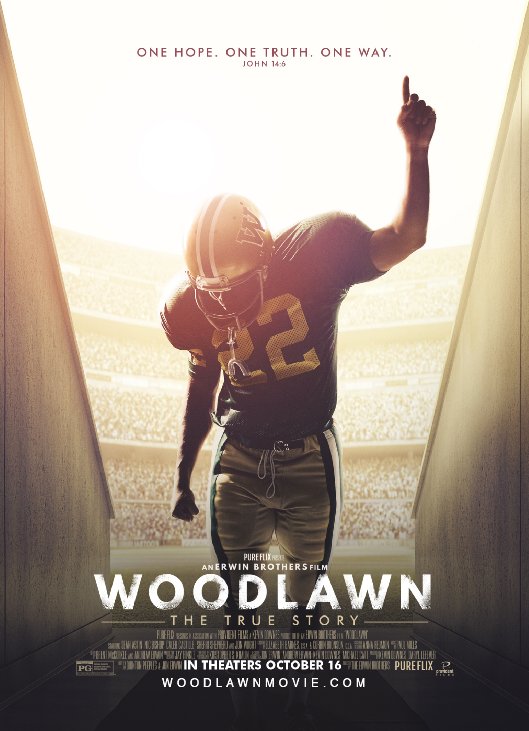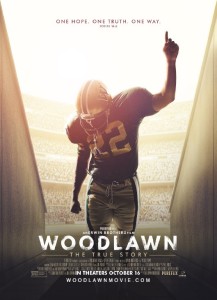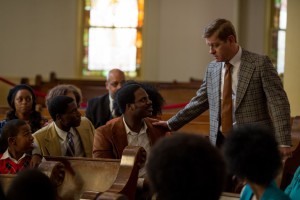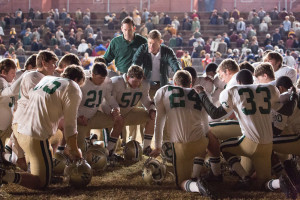
Film Review “Woodlawn”
WATCH THE TRAILER HERE
First, the Recap:
Black and white. In today’s current vocabulary, this term would be utilized to express a notion that a given situation is straight forward, with a given resolution that is evident. It is a set, clear path to follow in the decisions which need making. There is no middle ground. In Birmingham, AL circa 1973, those two words held a much deeper, more controversial implication. It was a day and time of racial tensions, where the concepts of segregation and integration still existed in strong, hotly debated conflict within the public’s own court of opinion. And within this conflict, Woodlawn High School football coach Tandy Gerelds (Nic Bishop) stands, dealing with all the contention of having an integrated team.
As internal struggles arise among the players, an unexpected visit by a man of faith, Hank (Sean Astin), brings about a radical change in the entire team, a discovery of faith that brings them all closer together, breaks down racial walls, and enhances the team’s character on and off the field. In this new mix, Tandy wrestles with trying to comprehend his team’s newfound unity via faith in Christ, even as he himself refuses to believe. Also encountering the initially rocky waters of faith is the team’s star player Tony Nathan (Caleb Castille), whose skills propel the Woodlawn football to new heights, even while facing the ugly specter of prejudice. But as they all stand for what they believe, Tandy, Tony, and soon many around them realize that there is something more to this faith than meets the eye.
Next, my Mind:
Co-directors Jon and Andrew Erwin have long established their goal to write, produce, and direct films that center on God, faith, hope, and people overcoming adversity, which frankly should all be themes we never tire of and really need more of. With “Woodlawn”, they very effectively and emotionally engage the viewer in this true story account about how those exact elements all came together to unite not just a football team and their coach, but an entire community during a time when unity was an almost foreign concept, especially when it came to race relations. Vividly illustrating the disharmony of the era, the film moves quickly and fluidly through the team’s incredible transformation of faith and how it impacts them all, but focuses on Tandy and Tony’s journey in particular.
Bishop plays Tandy as a realistically, and honestly, baffled man and coach once his team’s transformation occurs, and the internal battles he faces himself on what becomes a miraculous season and personally soul-searching trek is believable and heartfelt as he supports his kids even as they end up influencing him. In a similar manner, Castille brings us the star athlete Nathan across as both the highly confident, yet deeply conflicted, young man he is. Flaunting his talent, but also having to face the enmity and racial injustices of a town’s attitudes towards African Americans, Tony’s navigation of these perilous encounters is also genuine and real. And as always, Astin’s affable but powerfully committed Hank brings a welcome light to every scene he’s in, and does so with a playfulness and seriousness that makes him that much more honest and natural in being the voice of faith.
Add the additional executive producing power of Roma Downey and her husband Mark Burnett (“Son of God”, “The Bible”), and what we have is a faith-proclaiming film that is not pretentious, presents its message with a clear, true, and unwavering heart, and most certainly will bring a hopeful smile to viewer’s faces.
As always, this is all for your consideration and comment. Until next time, thank you for reading!




